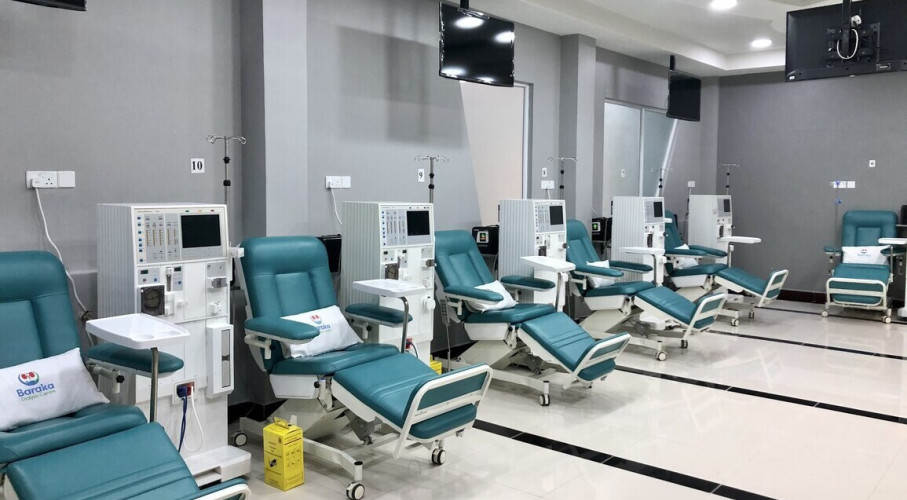Chronic Kidney Disease and Acute Kidney Disease are significant global public health issues, with increasing prevalence. When kidneys fail, dialysis or transplant becomes necessary. Statistics show that most sufferers are of working age, leading to job loss and poverty. Over 18,000 Nigerians need dialysis annually, though these numbers are likely underreported.
The 2018 World Kidney Day presented a moment for sober reflection for Nigeria following the revelation from statistics given by the Nigerian Association of Nephrology (NAN). It was disclosed that a staggering 25 million Nigerians suffer from kidney failure, a condition where the kidneys can no longer function effectively without medical intervention such as dialysis or transplantation.

This alarming statistic underscores the critical need for accessible and quality dialysis treatment options in Nigeria. Unfortunately, many of these individuals, particularly those of working age, face significant challenges in managing their condition. These challenges include the loss of employment and subsequent descent into poverty, exacerbated by the high cost and limited availability of treatment options.
Despite the pressing need, access to quality dialysis treatment, the most common form of renal replacement therapy in Nigeria, remains fraught with difficulties. These include a shortage of adequately trained personnel, poor administration and management of dialysis centres, and unpredictable treatment services, especially in public facilities.
The establishment of a new dialysis centre is thus essential to address these challenges. By setting up a state-of-the-art facility, we aim to increase the accessibility of safe and quality dialysis treatment for kidney disease patients. This centre will be developed according to best practices and designed to meet patients’ expectations for safe, high-quality, predictable, and compassionate care.
Access to quality dialysis treatment which is the commonest form of renal replacement therapy in Nigeria is challenging. There is also shortage of adequately trained personnel, poor administration or management, lack of predictable dialysis treatment services especially in public canters.
Setting up this Dialysis centre would increase accessibility of safe and quality dialysis among kidney disease patients. This centre must therefore be set up according to best practices and to meet the patients’ full expectation of safe, quality, predictable and compassionate care.
The scope of this project is therefore to set up an ultra modern Dialysis centre that will provide safe, quality, predictable and compassionate dialysis treat
This project will: increase availability of dialysis centres, reducing the burden on existing public and private facilities. It will ensure predictable and quality dialysis services, minimizing disruptions common in public hospitals. It will serve as a lifeline for patients who currently lack access to reliable treatment.
Many patients suffer complications due to low quality of dialysis treatment services. A well-equipped centre with adequate facilities will improve survival rates
The project will create direct jobs for healthcare professionals, including renal nurses, dialysis technicians, and biomedical engineers. Training programs for nurses and technicians will bridge the skill gap in renal care. Ancillary services (e.g., medical supply vendors, cleaning staff, and security) will also benefit.
The centre will serve as a model for best practices in dialysis treatment and facility management.
Our broad objective is to establish an ultra-modern Dialysis centre that provides safe, quality, predictable, and compassionate dialysis treatment. We need to achieve the following objectives:
The proposed number of Dialysis machines to be supplied would depend on the size and scope of the project
The specification of the central water treatment would be based on the proposed number of Dialysis machines
This includes Dialysis consumables as well as kits for measuring Urea, Creatinine, and PVC
Carried out for Renal Nurses, Dialysis Technicians for safe operation and basic maintenance of Dialysis machines
Engineering National Prosperity